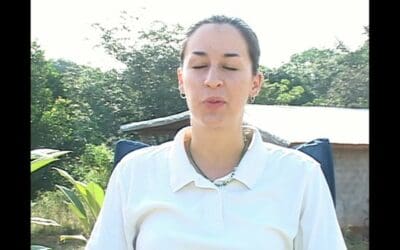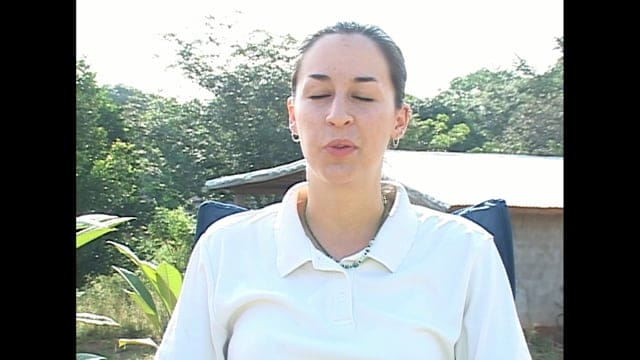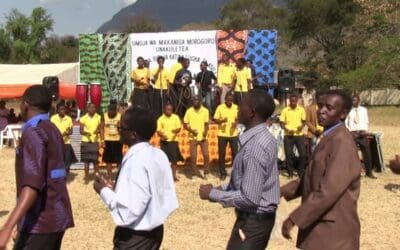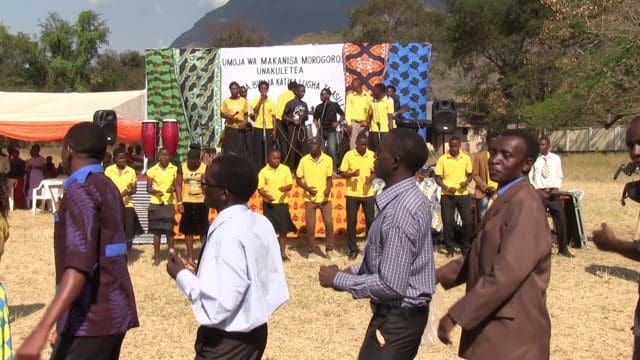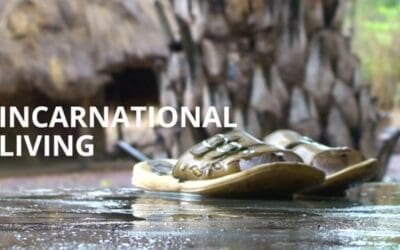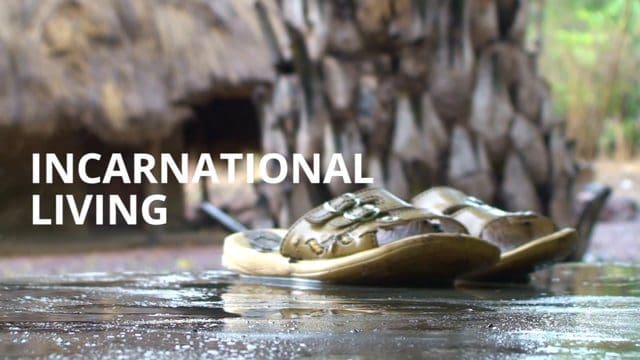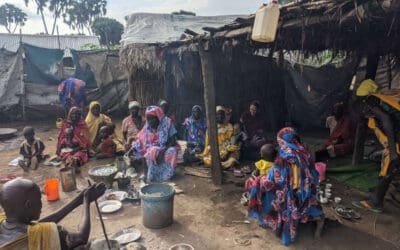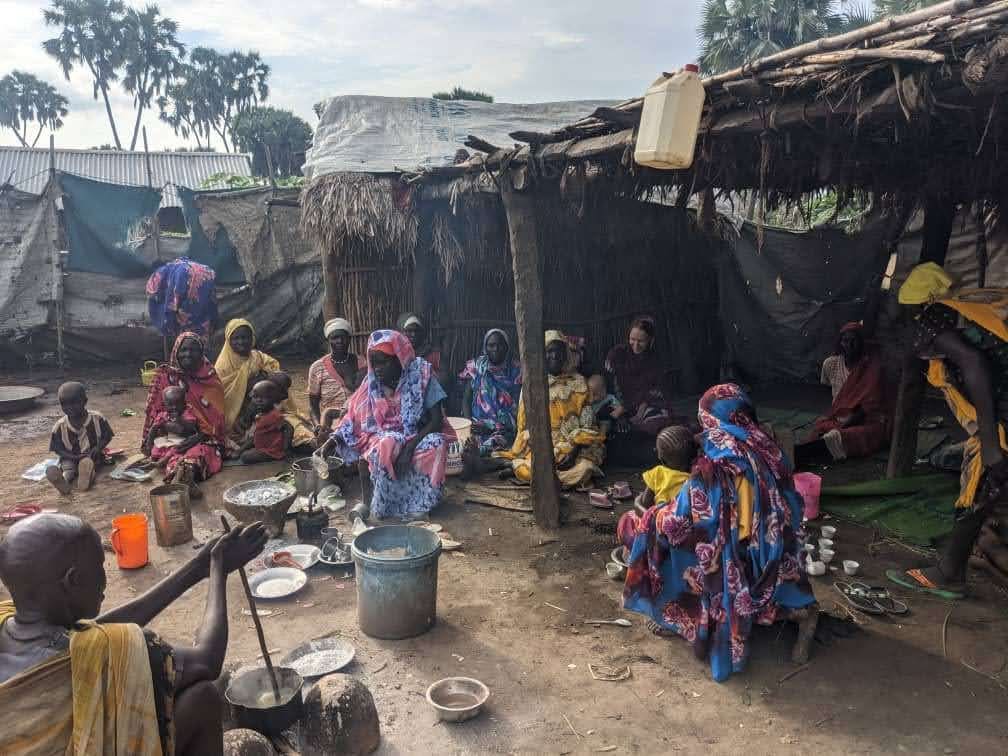“I was trying to figure out if God was still good.” Denise shades her eyes from the sun and watches me. I brush ants off my legs as I scribble the statement on my yellow notepad. It looks ugly scrawled across the page.
As an intern with Pioneer Bible Translators part of my job is to collect missionaries’ stories. I had come for a particular story from Denise, who serves as a missionary to West Africa, but our conversation has strayed far from the specifics of one story.
“I was wondering why He allowed suffering in the lives of the people who love Him.” I listen to Denise talk about her life in West Africa. The sun falling across the picnic table where we sit grows hotter and heavier.
Denise’s father had cancer. He passed away just a few months before she and her husband and children left America. In a small mud brick house 6,000 miles away in Africa, there was no grave to sit beside. There was just waking up again and again in a strange country, feeling the new and greater distance between herself and her father.
Denise’s family and missionary team faced other trials. They dealt with undiagnosed sickness and the dangers of raising children in a developing country. They lived through contagious disease, ethnic conflict, and family emergencies.
These are struggles I can’t imagine. I hear them from the other end of the red picnic table with a distant awe. Then she tells me about other pain, more mundane hurting, and the story settles over me with a familiar weight. “Even everyday chores were hard,” she tells me. “My skills, everything I had learned, felt useless there.” She was trapped, seemingly without the tools to cope in her surroundings. I imagine waking up in West Africa, breathing through the morning heat. The way Denise talks about it reminds me of waking up in my college dorm room, tired before the day even began, the weight of the world pressed against my chest like another blanket. Did she begin her days like I did, a feeling of failure settling over her skin like sweat?
Denise describes going to the market in West Africa. She would push her way through the vast crowds and the noise of an unfamiliar language as people pressed in, gawking at her pale skin. In the press of bodies, breathing was harder. Her palms sweated and trembled. “I didn’t have the skills to find the way home, or a bathroom, or my daughter if she became lost.” It should be the simplest thing, shopping for her family, but there it meant venturing into chaos.
She begins the story about the charcoal ladies, the one I came to hear. “This started during a time of finding God again, after a very dry time.” Denise would wander through the maze of vendor booths and bodies, looking for what she needed as people called for her attention—trying to sell her something, to correct her language, to ask her questions.
Squatting by the road were women selling charcoal. “I never needed charcoal, but they would always smile and greet me.” She didn’t need to buy anything from them, yet she was drawn to them—a still place in the crowd. “I was trying to find ways to be less afraid. I found I wasn’t afraid when I was just being friendly with people.”
Denise would greet the women in return and reach to take their hands. They always pulled back, turning up their palms to show her that they were dirty with charcoal. But she would take their hands anyway, clasping them tightly before she walked away. “Then, when I was overwhelmed in the market I would look down at my hands, at my blackened hands. If I did nothing else that day, at least I had made someone smile. I had taken the hand of a charcoal vendor, ignoring the dirt to grasp her humanity.” I am left with the image of Denise, lost in a crowd, staring down at her own grimy hands.
At the picnic table my pen stands still, bleeding ink into my paper. Denise leans her head against her hand. “God is good,” she says. “I learned even to be grateful for my father’s death because of what it taught me about the Lord.” To me this story, and this conclusion, are unsatisfying. I am caught in the detail, picturing Denise’s dirty hands, but the picture is not redemptive. It feels far too small, the good in life dwarfed by the enormity of her pain.
“If I did nothing else that day, at least I had made someone smile. I had taken the hand of a charcoal vendor, ignoring the dirt to grasp her humanity.”
Denise and her family have not been able to return to life in West Africa. She has been sick for a long time with symptoms that have not yet been diagnosed. After years of preparation, after language learning, obtaining visas, and uprooting their lives to live in a strange new place, her family’s future in Africa is uncertain.
Denise tells me that she was drawn as a teen to be a missionary. She told Jesus, “If You are going to call me to missions, You have to make sure that I love it, please.” Through a few short-term missions trips, she found she did. After she had a family, she was drawn to Africa through a video of a man asking for a Bible for his people. She felt compelled by his words: “Please come. My people are welcoming. Don’t be afraid.” She has known since she was 13 that she was supposed to be a missionary. But if she cannot return to Africa, what is she supposed to be now?
I sit next to Denise, my eyes following the progress of a beetle along the grain of the wooden bench. What happens if you have to leave your calling? I’m not asking her; I’m tracing the lines in the bench with my fingers, my head heavy with the thought, hot under the sun. Denise insists that God is good. That is what she found, in the dust and heat and heartbreak of West Africa. She shares a verse to which she has clung throughout her trials: “I remain confident of this: I will see the goodness of the LORD in the land of the living” (Psalm 27:13). But what does that mean? If so much of what she sees around her is not good, what is the goodness of God worth? The beetle skitters off the side of the bench, frightened by the shadow of my hands, and I am reminded of another missionary’s story.
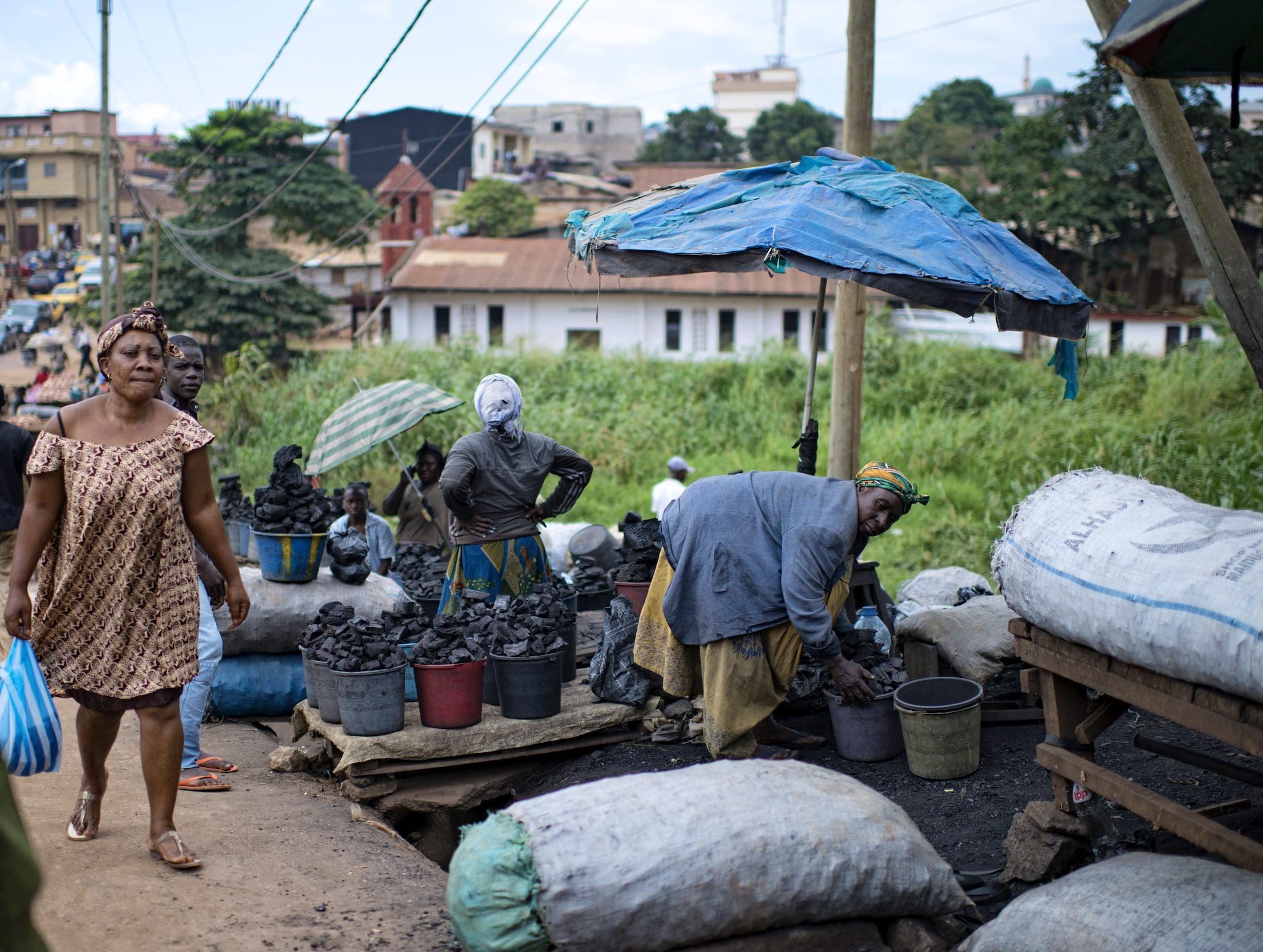
God used the blackened hands of charcoal vendors to remind a discouraged missionary of His goodness.
Anita also served in West Africa, for 18 years. She told me about an experience in the market similar to Denise’s. The crowd surrounding her, jostling her. The smell and the noise and bodies filling up her space. I can see her turning slowly, finding no way out. She stands still with her eyes shut, her hands covering her face to hold the panic in. “Lord, this is not what I imagined, this is not what I asked for.” As she told me this story I pictured her, her heartbeat trembling through her shirt, her breathing unsteady, her prayer coming out broken.
In that still moment of prayer she remembers a story from Luke 8, when Jesus was trapped in a crowd so large that it almost crushed Him. He was trying to push through after His disciples, but everybody wanted something from Him. They closed in on Him, crying out their need. One sick woman slipped through the crowd just for a chance to touch His robe. Jesus felt the power of the Holy Spirit go through Him. When He turned, there was the woman, still in the jostling crowd. She was healed. Did Jesus reach out to touch her, so that as He walked away He could look down at His hands and know that in the chaos God had redeemed someone? Lost in a crowd in West Africa, Anita felt a sudden camaraderie with her Savior.
Anita said that working with God is a struggle—a lost-in-a-crowd kind of struggle, trapped in a world of suffering, faced with the brokenness of humanity. But she says it is also a fierce joy. She has seen God heal people and churches and villages the way He healed one dying woman in a crowd. She will not forget His faithfulness. In all the hurting and the dragging on of long weary days, in praise and grateful remembrance God draws near. “It’s worth everything to know the presence of God.”
Now Denise tells me, “He allows us to hit rock bottom, to have only Him. You change a lot when you are stripped of all other things.” Sitting with her I feel the weight of rock bottom. My hands lie flat against my notebook, tense with the fear of waking every day to new weariness. These thoughts make everything feel heavy—the pen in my hand, the thick Texas air, my eyes squinting down at the bench where I sit. “How did you decide again that God was good?” I ask.
Denise takes a breath. “I forced myself to remember. I forced myself to look back on all the good He had done in my life, and in the lives of my friends. And I forced myself to take notice of the little good things in every day, like the charcoal ladies.” I start nodding because I remember a verse, carefully set down in my journal, from Psalms. “Why are you downcast, O my soul? Why so disturbed within me? Put your hope in God, for I will yet praise Him, my Savior and my God.” It was David, preaching to his soul, reminding his weary spirit of who God is.
“God reminded me of the book of Hebrews,” Denise tells me. “It says that some of the greatest people of faith never saw His promises fulfilled. I may not see the good that He is working for a long time. But I can look back and see what He has done.” I can see when she talks about Him that she has a close bond with our Lord. She shares in His pain, and she shares in the work He is doing to bring His goodness on earth. He called her to be a partner in the love that He is pouring out on the people of West Africa. Now He is calling her to partner with Him here in the United States. She doesn’t know what that looks like yet. But she has the assurance that she is within His will, His partner in the good He is bringing. She preaches that assurance over herself.
Working with God is a struggle — a lost-in-a-crowd kind of struggle, trapped in a world of suffering, faced with the brokenness of humanity. But it is also a fierce joy.
Denise’s story is a hard one to hear. But she knows something in her heart that I know only in my mind. I know that God is good, but He has shown Denise His goodness. She has felt its power and its worth. The charcoal ladies were a small joy, one to look back on, to present to a weary soul. They are a reminder, another moment in the vast accumulation of God’s goodness.
Listening to Denise’s story, I feel a familiar heaviness, a weighty anxiety settling around me. As I prepare to leave I am reminded of an old question I have often asked: “Lord, is this what you want for me? A dry and weary life?” I stand to go and Denise says, “You know, God is just sweet. He will still whisper sweetly to you.” She says it with such tenderness, I can see the memory of His voice softening the lines of her smile. “Even when I was most weary, He speaks.”
“Why are you downcast, O my soul?” I say it to myself as I walk away. “Why so disturbed within me?” He has been faithful to Denise, to Anita, and to the people of West Africa. They are my charcoal ladies. “Put your hope in God, for I will yet praise Him, my Savior and my God.”
Photos used to illustrate this story with permission are © Flickr user “CIFoR,” made available under Creative Commons Attribution-NonCommercial-NoDerivs 2.0 Generic license.
